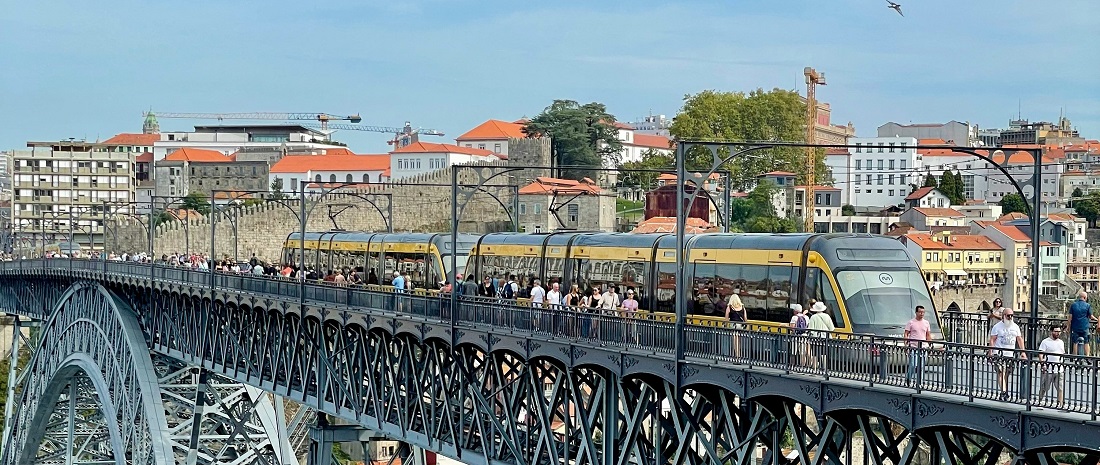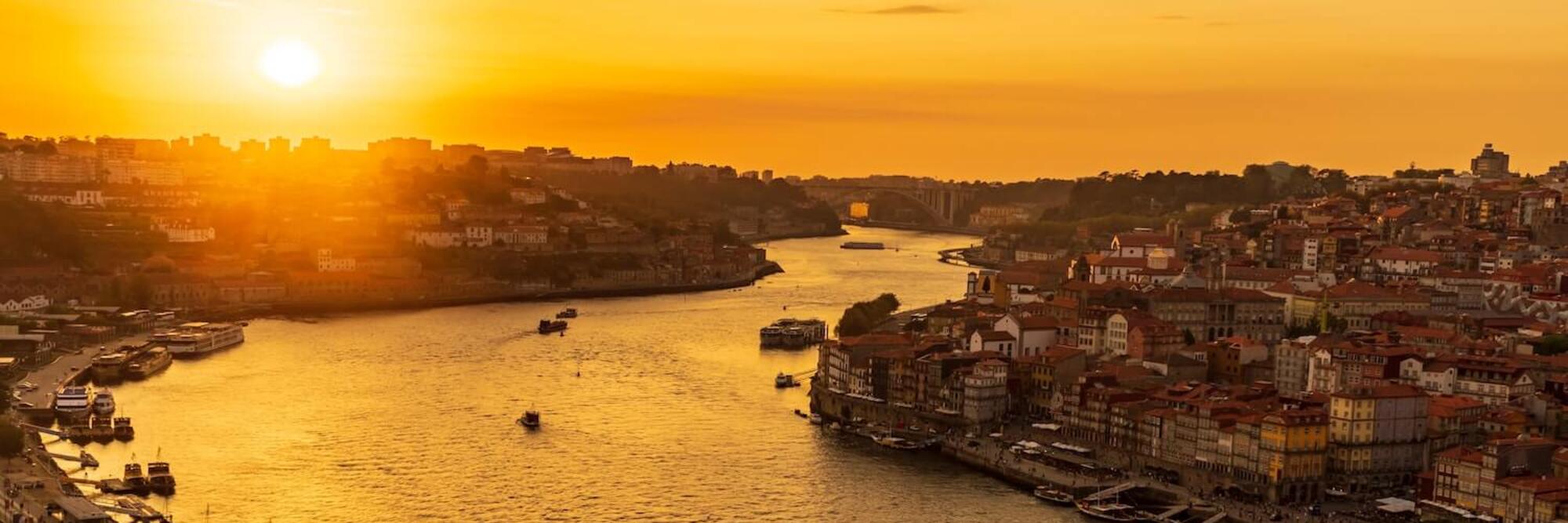You'll have several options available to you if you're planning on travelling in Portugal. If you're in a Portuguese city such as Lisbon, Faro or Porto, you're likely to find that having a car is unnecessary unless you want to travel to other parts of the country.
Trains in Portugal are a comfortable and efficient way to travel between cities. Services don't always operate at frequent intervals, so travelling by train requires some planning. The bus network is far more comprehensive and covers areas located inland.
Expats living in rural Portugal or the Algarve usually own cars. While Portugal's road infrastructure is modern, new expat drivers may take time to get accustomed to some driving conditions.
Public transport in Portugal
Portugal's capital city, Lisbon, and other urban hubs like Porto have modern transport networks comprising trains, buses, trams, and metro systems.
At the national level, though, public transport in Portugal isn't as extensive as one would find in other European countries. The railway network in Portugal is limited, leaving intercity buses as the only option for those without a private vehicle.

Metros
Lisbon and Porto both have metro systems. The Lisbon Metro consists of four colour-coded lines, with intervals between trains ranging from four to 12 minutes, depending on the line and time of day. The Porto Metro has six lines. The maximum waiting time between weekday trains ranges between six and 18 minutes.
Trains
The national rail network in Portugal, run by Comboios de Portugal (CP), is somewhat limited. While travelling by train in Portugal is often slightly faster than the equivalent bus journey, most trains only connect the major cities.
Suburban rail services cover the areas surrounding Lisbon and Porto reasonably well, but are limited elsewhere in the country. Commuters using trains in Portugal find the services efficient and comfortable. As trains aren't frequent, it's best to make a reservation well in advance.
Trains in Portugal tend to operate less frequently and are pricier than intercity buses. Rail fares are still much more reasonably priced than you would find elsewhere in Europe, though. Tickets can be bought online or in person at any train station in Portugal.
Buses
Due to the country's limited rail network, many of those who need to travel nationally in Portugal prefer to use intercity buses. Bus services in the country are offered by several private companies, and it's not unusual to find two different bus companies operating at the same stop. Although travelling by bus in Portugal may take a little longer, bus routes tend to be more extensive and cover places that lie off the beaten track.
Bus fares in Portugal are also reasonably priced, especially in comparison to those elsewhere in Europe. Rede Nacional de Expressos is the largest intercity bus company and has routes that cover the length and breadth of the country. You can easily find schedules at bus stations.
Useful links
Taxis in Portugal
Taxis abound in Portugal's major cities like Lisbon and Porto, but may be more challenging to find in the country's rural areas. If you live in a Portuguese village, you may have to call for a taxi in advance, but city-dwellers can easily hail one off the street or find them at designated taxi ranks. As buses and trains are quite infrequent, you may find yourself relying on taxis more often than you'd expect.
Charges are higher at night and on weekends. All charges are posted inside the taxi, and most have a meter. Ensure the meter is on before beginning the journey to avoid being overcharged. In the major cities, ride-hailing services like Uber and Bolt are also available.
Useful links
Driving in Portugal

Road conditions in Portugal are generally good, especially on the motorways connecting major cities. That said, there are secondary roads in rural areas where driving conditions can be dangerous.
It will probably take some time for expats to get used to interacting with Portuguese drivers. It's important to drive defensively, as local drivers can sometimes be erratic. The Portuguese government has taken steps to alleviate the problems associated with aggressive driving by introducing harsh punishments for those caught speeding, driving without a valid licence, or under the influence of alcohol or narcotics.
Driver's licences
A valid foreign licence can be exchanged for a Portuguese licence. EU nationals can use their driver's licence until it expires. Those from outside the EU can drive on their licence from home for up to six months, at which point it must be exchanged for a local licence.
If your driver's licence is not from a country with exchange agreements with Portugal, you may need to undergo written and practical driving tests. You'll also need a medical certificate, a certificate of authenticity for your original driver's licence, and your Portuguese tax identification number (NIF).
Useful links
Air travel in Portugal
Domestic flights in Portugal are relatively expensive, so few people fly within the country, and airports are used mainly for international travel. Portugal's three international airports are in Lisbon, Porto and Faro.
